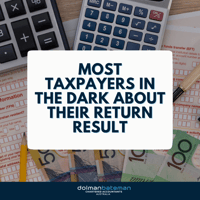To all the influencers out there… We know that managing taxes can be a real headache, especially...
Tax-Free Triumph for Not-for-Profits: Understanding Self-Assessment for Tax Exemption

For not-for-profit organisations (NFPs) in Australia, securing and maintaining tax exemption status is crucial for maximising resources and achieving their missions.
Self-assessment for tax exemption is an essential process that enables NFPs to determine their eligibility for tax-free status.
This guide will cover the importance of self-assessment, criteria for eligibility, types of income exempt from tax, documentation and reporting requirements, the application process, and common pitfalls to avoid.
Overview of Self-Assessment and Its Importance for NFPs
What is Self-Assessment?
Self-assessment is a process where not-for-profit organisations evaluate themselves against specific criteria set by the Australian Taxation Office (ATO) to determine their eligibility for income tax exemption.
This process empowers NFPs to manage their tax obligations proactively and ensure compliance with ATO regulations.
Importance for NFPs
- Financial Efficiency: Tax exemption allows NFPs to allocate more resources towards their core activities and objectives, enhancing their ability to serve the community.
- Compliance: Regular self-assessment ensures that NFPs remain compliant with ATO requirements, avoiding potential penalties and maintaining their tax-exempt status.
Criteria for Eligibility
To be eligible for tax exemption, NFPs must meet specific criteria outlined by the ATO:
- Purpose: The organisation must be established and operated for a not-for-profit purpose, such as charity, education, or community service.
- Income and Assets: The organisation’s income and assets must be used solely for its not-for-profit purpose.
- Legal Structure: The organisation must be appropriately structured as an NFP, such as an incorporated association or a company limited by guarantee.
Types of Income Exempt from Tax
Detailed Explanation of Exempt Income Categories
The ATO specifies various categories of income that are exempt from tax for eligible NFPs:
- Gifts and Donations: Income from genuine gifts and donations is typically tax-exempt.
- Government Grants: Certain government grants and subsidies may also be exempt.
- Membership Fees: Income from membership fees, provided they are used to further the organisation’s objectives, is often exempt.
- Fundraising Activities: Proceeds from fundraising activities, such as charity events and raffles, can qualify for tax exemption if conducted in line with ATO guidelines.
Examples of Income Types That Qualify
- Charitable Donations: Donations received from individuals and corporations for charitable purposes.
- Educational Grants: Grants received from government bodies for educational programs.
- Event Proceeds: Funds raised from community events designed to support the organisation’s mission.
Documentation and Reporting Requirements
Key Records NFPs Must Maintain
Maintaining comprehensive records is crucial for NFPs to support their tax exemption status:
- Financial Statements: Detailed financial records, including income and expenditure statements.
- Receipts and Invoices: Documentation of all transactions, including receipts for donations and invoices for expenses.
- Meeting Minutes: Records of board meetings and decisions that demonstrate compliance with the organisation’s purpose.
Reporting Obligations to the ATO
NFPs must meet specific reporting obligations to the ATO to maintain their tax-exempt status:
- Annual Information Statement (AIS): Submission of an AIS detailing the organisation’s activities and financial performance.
- Tax Returns: While tax-exempt NFPs may not need to file tax returns, they must still report certain types of income and comply with other reporting requirements.
Application Process for Tax Exemption
Step-by-Step Guide to Self-Assessment
- Review Eligibility Criteria: Ensure the organisation meets all ATO criteria for tax exemption.
- Gather Documentation: Collect necessary documents, including financial statements, governing documents, and records of activities.
- Complete Self-Assessment: Use the ATO’s self-assessment tools and guidelines to evaluate eligibility.
- Submit Application: If required, submit an application for tax exemption to the ATO, including all supporting documentation.
How to Apply for and Maintain Tax Exemption Status
- Initial Application: Submit the application along with the required documentation to the ATO for approval.
- Ongoing Compliance: Regularly review and update records, submit required reports, and conduct annual self-assessments to ensure ongoing compliance with ATO requirements.
Frequent Mistakes Made by NFPs
- Inadequate Documentation: Failing to maintain comprehensive records can jeopardise tax exemption status.
- Misuse of Funds: Using income or assets for purposes other than the organisation’s not-for-profit objectives can lead to loss of exemption.
- Non-Compliance: Ignoring reporting obligations or eligibility criteria updates can result in penalties.
Tips for Staying Compliant with ATO Requirements
- Regular Training: Stay informed about the latest ATO requirements and guidelines through regular training and updates.
- Professional Advice: Consult with tax professionals to ensure compliance and optimise tax benefits.
- Annual Reviews: Conduct annual reviews and self-assessments to ensure ongoing eligibility and compliance.
Securing and maintaining tax exemption status is vital for not-for-profit organisations to maximise their resources and effectively serve their communities.
By understanding the self-assessment process, maintaining accurate records, and staying compliant with ATO requirements, NFPs can unlock significant financial benefits.
For expert advice and assistance with navigating the complexities of tax exemption, consider partnering with a professional tax advisor.
Contact us at 02 9411 5422 to ensure your organisation is on the right track to achieving its financial and operational goals.



